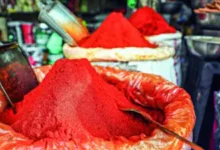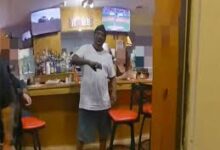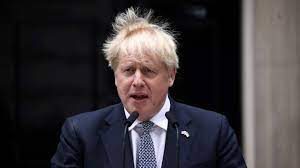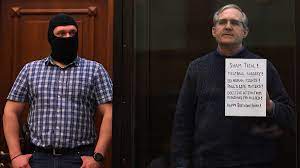US Judge Issues gag order prohibiting Trump from discussing witnesses and other cases involving hush money
Given Donald Trump’s history of making “threatening, inflammatory, and demeaning remarks” about individuals connected to his legal cases, a New York judge on Tuesday issued a gag order prohibiting the former president from speaking out about witnesses, prosecutors, court personnel, and jurors in his upcoming hush-money criminal trial.
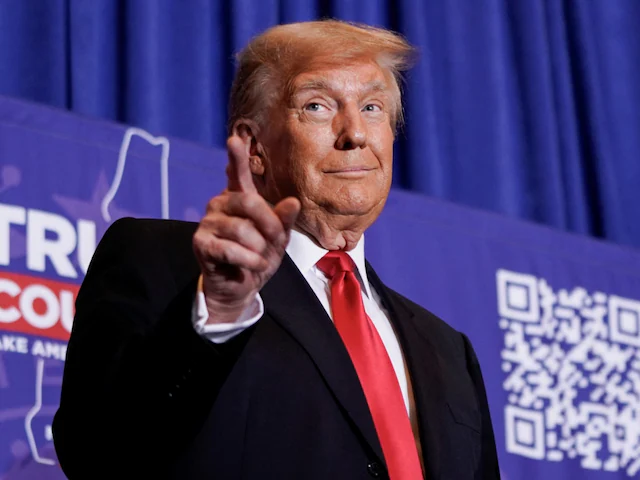
Judge Juan M. Merchan’s ruling, which echoed a gag order in Trump’s criminal case pertaining to election involvement in Washington, D.C., was made the day after he denied the defense’s request to postpone the Manhattan trial until the summer and instead ordered that it start on April 15. It will be the first criminal trial of a former president if the scheduled date is kept.
In a four-page ruling that granted the prosecution’s request for what it called a “narrowly tailored” gag order, Merchan wrote, “Given that the eve of trial is upon us, it is without question that the imminency of the risk of harm is now paramount.” The judge said that in order to safeguard his targets and look into threats, further security measures are needed as a result of the words made by the presumed Republican presidential candidate.
Trump’s legal team opposed the gag order, arguing that it would constitute an illegal and unconstitutional prior constraint on his right to free expression. Long opposed to enforcing a gag order, Merchan said his duty to protect the trial’s integrity trumped First Amendment considerations. In a recent court filing, Trump’s attorneys Todd Blanche and Susan Necheles said, “President Trump’s political opponents have, and will continue to, attack him based on this case.” “The people should hear President Trump’s unrestricted responses to those attacks, not just one side of the argument.”
The gag order prevents Trump from stating publicly about possible witnesses and jurors in the hush-money case, or from ordering anyone to do so. Additionally, it forbids any remarks intended to intimidate or cause distress to the prosecution team, court employees, or their families. It does not prohibit remarks against elected Democrat Manhattan District Attorney Alvin Bragg or Merchan, whom Trump called “a Trump-hating judge” with a family full of “Trump haters” after his arrest last year. However, it sends a message to Trump that disparaging important players in the case, such as Stormy Daniels, the porn actress, or Michael Cohen, his former attorney, who is now the opposition, won’t be allowed.
Trump may be imprisoned, fined, or even placed in contempt of court for a breach. Cohen, a crucial prosecution witness against Trump, stated, “I want to thank Judge Merchan for imposing the gag order, as I have been under relentless assault from Donald’s MAGA supporters.” “However, knowing Donald as I do, he will attempt to circumvent the gag order by using people in his inner circle to carry out his orders, no matter the cost.” Blanche chose not to respond. Additionally, Bragg’s office refused to comment. A message was sent to Trump’s presidential campaign requesting a response. The gag order strengthens already-existing limitations that forbid Trump from disparaging witnesses in the investigation using evidence.
In the hush-money case, Trump is accused of documenting payments to Cohen—his personal attorney at the time—as legal expenses in the accounts of his business, despite the fact that Cohen’s work during the 2016 campaign included stifling bad reports about Trump. Among them was the $130,000 he had given Daniels on Trump’s behalf to keep her quiet about her alleged previous sexual encounter with him. In April of last year, Trump entered a not guilty plea to 34 counts of fabricating company documents, a felony that carries a maximum four-year prison sentence. However, a conviction does not ensure that Trump will serve any time behind bars. He denies ever having sex with Daniels, and according to his attorneys, Cohen’s payments were just reasonable legal fees and had nothing to do with any kind of cover-up.
While not going so far as to silence Trump, Merchan cautioned him before his arraignment not to say anything that might encourage violence or compromise security. Merchan said, “I’m bending over backwards and straining to make sure that he is given every opportunity possible to advance his candidacy and to be able to speak in furtherance of his candidacy,” at a subsequent hearing, citing Trump’s “special” position as a former president and current contender. Merchan has become more concerned that Trump’s remarks may sabotage the historic trial as jury selection draws closer. Merchan made the decision earlier this month to withhold the jurors’ identities from the public.
The court said that while Trump will have access to them, he runs the danger of losing it if he makes the identities publicly known or participates in intimidating or disruptive behavior that jeopardizes the security or credibility of the jury. With the gag order in place, Merchan is now saying that a large number of the case’s participants are no longer available for Trump’s hateful remarks on social media, in court, or at campaign events. Throughout his New York civil fraud trial last year, Trump’s whining to TV cameras as he entered and left the courthouse became a routine.
Trump attacked prosecutor Matthew Colangelo during a news conference after exiting Monday’s hearing, where Merchan set the trial date. He called the former Justice Department employee a “radical left from DOJ” who was sent in to handle the Trump case “by Biden and his thugs.” In his decision, the judge referenced such comments. Trump has retaliated against the hush-money case on many occasions. Before being charged with a crime last year, he posted a photograph of himself with a baseball bat next to a picture of Bragg on social media and issued a warning of “potential death & destruction.” He has mockingly referred to Daniels as a “convicted felon, disbarred lawyer, with zero credibility” and called Cohen the same.
Merchan is only the most recent court to impose restrictions on Trump. In December, a panel of a federal appeals court maintained Trump’s gag order in his election meddling case in Washington, D.C., but limited its scope by allowing him to criticize special counsel Jack Smith, who initiated the investigation. By excluding Bragg, the New York gag order replicated that decision. Trump was fined $15,000 during the fraud trial for twice breaking a gag order that was put in place after his derogatory social media post against the chief law clerk of the court. In a civil lawsuit concerning writer E. Jean Carroll’s defamation charges against Trump in January, a federal judge threatened to remove Trump from the courtroom after he was overheard declaring that “it is a witch hunt” and “it really is a con job.”

